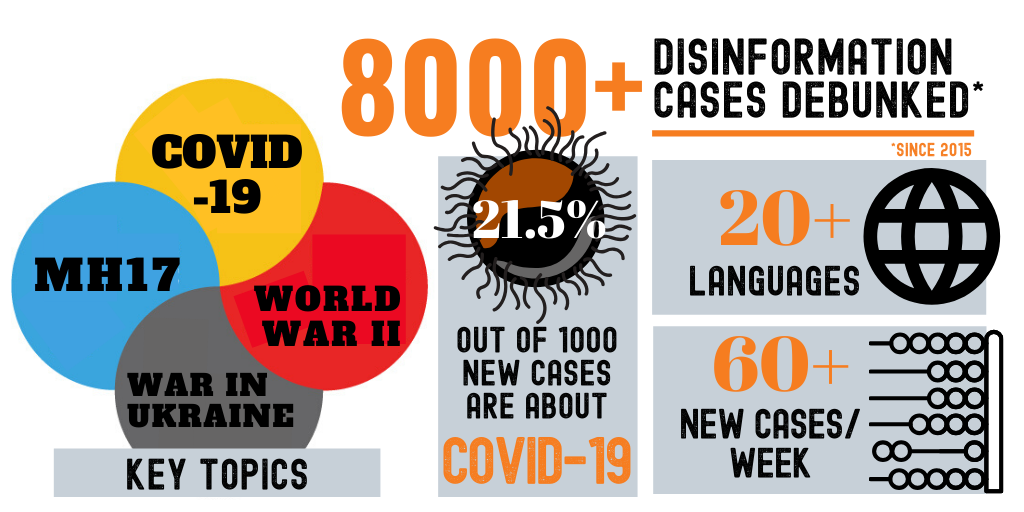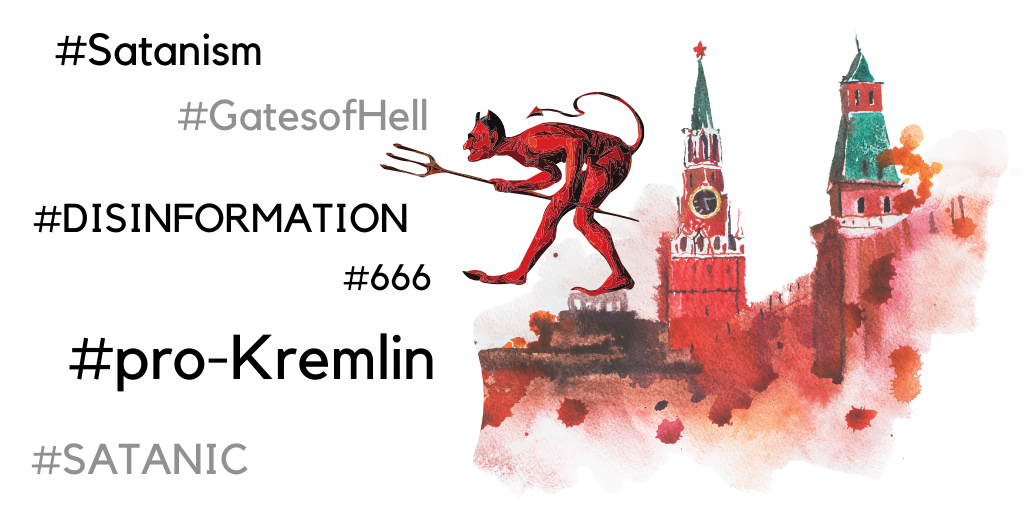It likely comes as no surprise that a significant proportion of these latest thousand cases relates to the coronavirus: a whopping 21.5% are about COVID-19, even though the first case on the topic – “a new Chinese coronavirus was likely elaborated in NATO biolabs” – was logged only on January 22.
As our coverage of the Kremlin’s coronavirus disinformation campaign shows, this conspiratorial theme has continued to thrive: nearly a fifth of the new cases invoke conspiracy theories of some kind or another, with 42 cases pertaining to “biological weapons”. Those accused of creating or weaponizing the virus include USAID (supposedly a CIA-affiliated terror group!), Pentagon-funded biological laboratories, American soldiers, Bill Gates, the United Kingdom, and of course “global ruling elites”.

Prior to the corona disinformation blitz, other themes that have featured heavily since December are historical revisionism, primarily in reference to World War II and Poland, as well as the West’s alleged “Russophobia”. Disinformation about NATO, the MH17 investigation, and the war in Ukraine, unfortunately, maintained a solid presence too.
Indeed, the Kremlin’s campaign to rewrite history in service of its geopolitical goals deserves special mention. Whitewashing the past of the Soviet Union has long been a priority of Russia’s leadership, and the pro-Kremlin media has diligently devoted itself to this task. The latter months of 2019 saw a major surge of cases targeting Poland as a primary instigator of World War II, including baseless accusations of an alleged alliance with Nazi Germany, as well as related attacks against the Baltic States.

The Kremlin’s war against remembrance is a persistent theme in its disinformation campaign and one that we should expect to see re-emerge time and time again, as witnessed in the case of the European Parliament’s resolution on the importance of European remembrance, which provoked a pro-Kremlin backlash for stating – accurately – that Nazi Germany and the Soviet Union shared joint responsibility for “dividing Europe into two spheres of influence”. For the Kremlin, history is instrumental; an “arena for fulfilling political ambitions” and a source of “eternal conflict”. Just consider the words of Russia’s former Minister of Culture, historian Vladimir Medinsky: “The criterion for truthfulness and reliability of a historical source lies in its correspondence with the national interests of Russia.”
While the coronavirus continues to dominate the news- and disinformation cycle, we should not lose sight of the broader playbook deployed by the pro-Kremlin disinformation campaign: to deceive and mislead people in many different spheres of their lives – from political engagement to vaccines to historical memory.
Read more:








